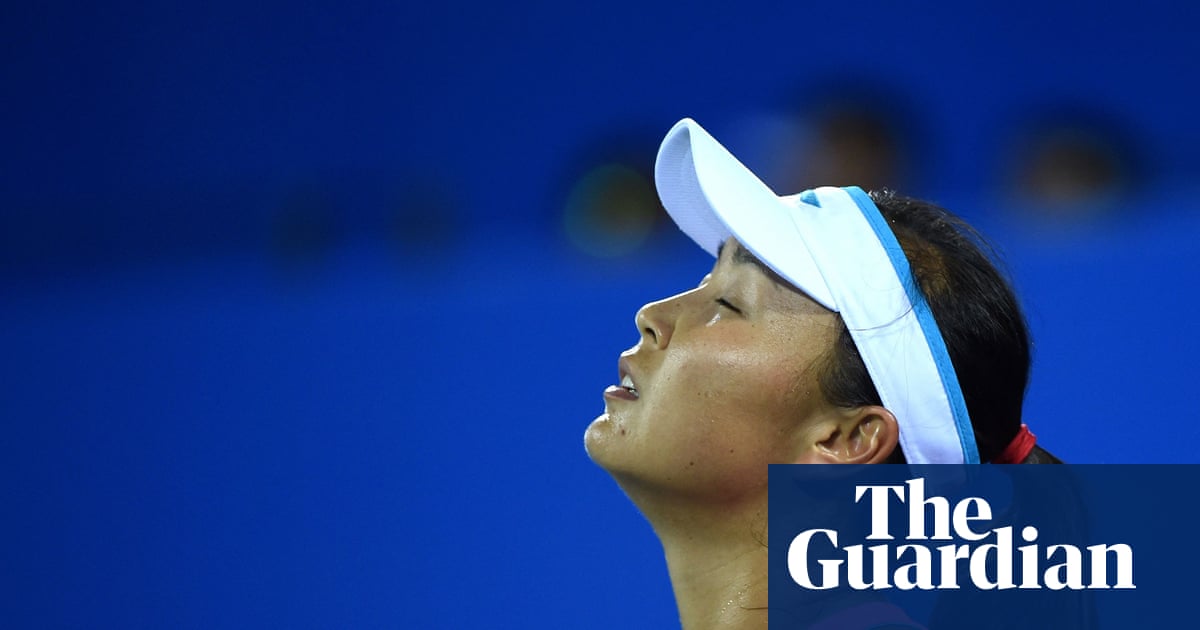
Despite endless speculation from international press in recent weeks, there has been barely a mention of tennis star Peng Shuai’s bombshell allegation against Zhang Gaoli, the country’s former vice-premier, in domestic news coverage. Outside the country, the event was initially referred to by the editor of the official nationalist tabloid Global Times, Hu Xijin, only as “the thing people talked about”.
“For some years now, China has responded to negative global attention either by giving an unconvincing explanation, or by stoically pretending the criticism isn’t there,” Zhang Ming, a retired professor of politics at Renmin University told Reuters this week.
But after the initial reluctance, Beijing now appears to be taking a different approach. And the way it’s dealing with “the thing” provides a glimpse of how the narrative is set to develop both internally and externally, with international attention turned to the forthcoming Winter Olympics and China’s broader relationship with the west.
When the French embassy in Beijing posted on its Weibo account about Peng early this week, censors did not take down the post. Instead, comments such as “mind your own business” were prioritised. Several commenters also reminded the French of the scandal of the 216,000 sexually abused children – mostly boys – in the French Catholic church since 1950. “Please, how do you [the French embassy] respond to this scandal?” one queried.
The foreign ministry in Beijing is changing its line, too. After denying the knowledge of the incident multiple times, it adopted an unrepentant tone on Tuesday. It accused unnamed people of “malicious hyping” in the case. “I hope certain people will cease malicious hyping, let alone politicisation,” a spokesperson said at a regular press briefing.
Having failed to convince the world of his take on “the thing”, Hu’s newspaper began to frame the disagreement as an ideological struggle between China and the west. It advocated a confrontational approach to the west. “China used to care about maintaining a harmonious atmosphere with the west and the way being regarded by the rest of the world, particularly by the west. This needs to be changed,” he wrote in an editorial on Tuesday.
“But the so-called ‘harmonious atmosphere’ has long shifted, and some Chinese state media appear to deploy the by now familiar tactic of bypassing critiques or questions by underscoring western hypocrisy – a tactic also very frequently used by Russian state media,” said Maria Repnikova, director of the Center for Global Information Studies at Georgia State University.
“This emphasis on the west and on ideological differences between China and the west in turn obfuscates the original allegations and arguably further politicises this issue as a battle of ‘us’ versus ‘them’.”
But Repnikova noted that on the other hand, even the best propagandists would find it impossible to please both sides that are divided by China’s “great firewall” censorship system. “It is an extremely sensitive story to begin with. You cannot say anything negative, therefore you only highlight the positive side of the spin: that she is just fine.”
Hence that tweet from CGTN, a Beijing-based news service, a fortnight ago. With a single stroke, the act opened a Pandora box that transformed a #MeToo case into high-stake international diplomacy. From Washington to Brussels, western governments now demand answers as to the genuine wellbeing of Peng. China hawks in major capitals felt their case for boycotting the Winter Games had become even stronger.
“The Peng Shuai saga could happen in any country and in any system … [But for Beijing, it] can make her play any role, including putting up a show of being free,” tweeted Ho Pin, an exiled Chinese publisher in New York. “For Chinese officials in charge of crisis management, such control is routine. But for the free world, this is even more frightening than forced confessions.”


